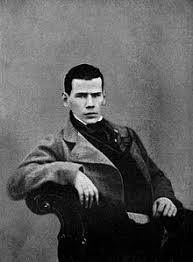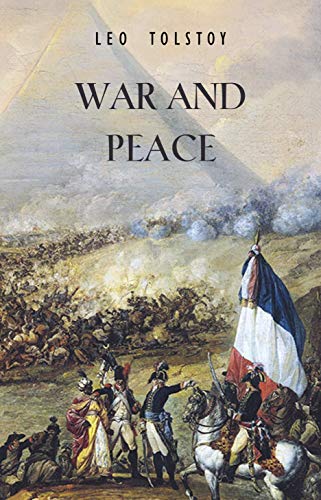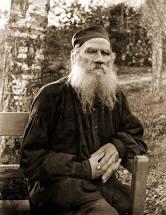Tolstoy, Leo: War and Peace



War and Peace is a large enough book to hold like a hamster in your hands, its heart beating no less animatedly. Opening the book is like opening palace doors, entering a large edifice of luxury and glamor in the days of peace, to be trailed by mud and guts and blood and glory in the theater of war. The story roars through the pages like the Volga and Lena in flood, but the style is as tranquil and transparent as a mountain lake. Tolstoy writes as authoritatively about music, philosophy, wolf-hunting! and love—as about balls and gossip and fashion, about the savagery of war as the delicacy of a marriage proposal. He knows the minds of generals as clearly as the hearts of adolescent girls. He shows us the evacuation and conflagration of Moscow (the straw that broke Napoleon’s back) as if he had witnessed the events. He may justifiably be called more Shakespearean than Shakespeare.
He has his drawbacks, indulging nationalistic speculations against Napoleon and forgetting he’s writing a novel, not history. He published the novel three times, the first revision omitted the historical speculation, the second put it back. He should have left it out. Fortunately, such passages are easy to skim and easily forgiven within the cosmic context of his enterprise.
Boney (the name with which many a recalcitrant English boy was threatened when he refused to eat his meat) is the bogeyman of the book—but, arguably, if Bonaparte had been victorious in Russia there might never have been the need for a Russian Revolution (sparked by the cruel autocracy), never the birth of the Soviet Union, never a Stalin or a Putin, never a Mao, but also never a Shostakovich or a Solzhenitsyn or a Sakharov.
Publishing a work of this magnitude and mastery would be an epic accomplishment even in the age of word processors and Google, but Tolstoy was in his late 30s when he scribbled these pages and all of 41 when he published them (1869), to be followed by a comparably impressive work: Anna Karenina. A much maligned word comes to mind, but you know what it is. Kudos also to Mrs. Tolstoy (Sophie Behrs) who copied no less than seven complete drafts of the novel!
Of peripheral interest, the Russian army ran the gamut of Russian society from laborers and peasants to princes and counts (Tolstoy, himself a count, was engaged in the Crimean War and the Siege of Sevastopol, not to mention several duels). Today’s armies comprise primarily commoners (including women). The last war to engage the ruling party was the Franco-Prussian War of 1870 attended by 73-year-old William I of Prussia.